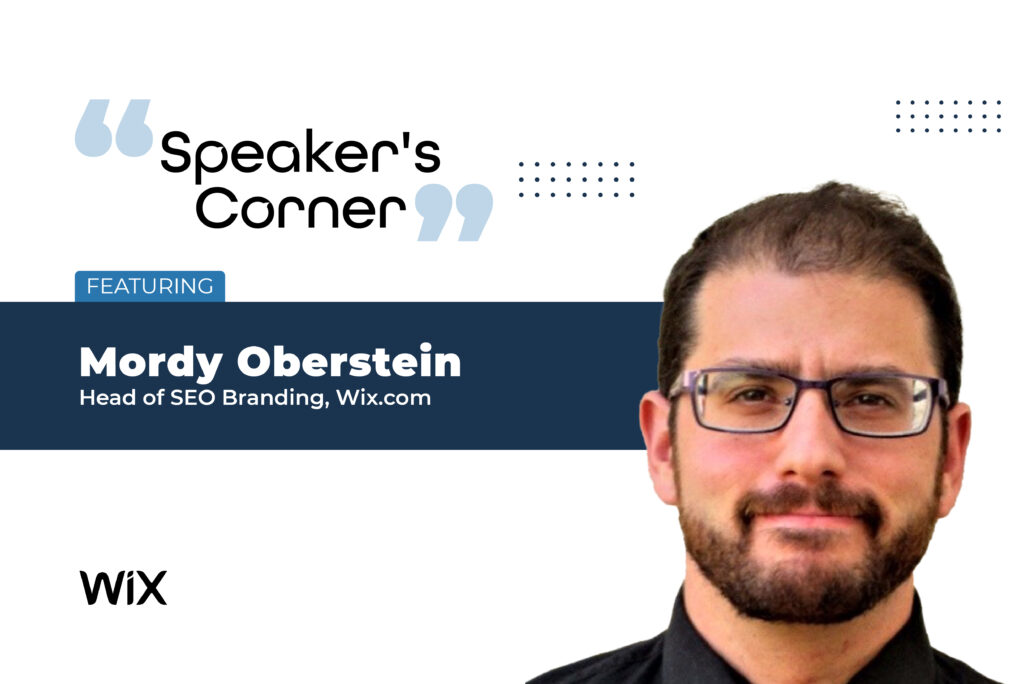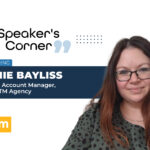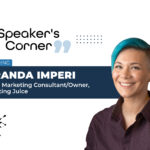
Speaker’s Corner: Featuring Mordy Oberstein, Head of SEO Branding, Wix.com
Tell me about Wix, its work and projects…
Wix is a leading website builder with over 200M users from 190 different countries. According to W3Techs we are the fasting growing CMS as well as the fastest growing web hosting provider on the market. Wix is incredibly vast we have something around 5K employees so it’s hard to speak for all of Wix and its projects but I can relate what we’re doing around SEO. There’s been a concentrated effort since circa 2020 to vastly improve both the SEO capabilities of Wix and the infrastructure that supports search engine crawlability and indexation.
To this, we’ve made the robots.txt file editable, created the ability to implement bulk redirects while checking for loops and errors, offer auto-redirects for many page types, have made it possible to create & edit structured data at scale (and automatically create markup in many cases), allowed for folder customization on product and blog pages, and on and on. It’s really been a very focused and expansive effort that I’m quite proud of.
What are the challenges within the Marketing industry today?
I live on the organic search side of the tracks and there’s a lot that’s been changing for a good while now that I think as an industry we’re still just barely recognizing. I look at the web overall as being a bit immature. In this, I’m not referring to the way behave online but rather user expectations and behaviors and the subsequent onus (or lack thereof perhaps) that these expectations puts on search marketers and content creators.
Things around overly zealous ad targeting, the proliferation of fake reviews, data privacy being called into question with the various appearances of CEOs before Congress have really gotten the overall digital public to start thinking about the web differently. That scepticism has started to change what people expect from web content. That’s a very big deal. It’s the beginning of what I see as the real maturation of the web. And it comes at the perfect time as Google has been focused on and in many ways has been able to better understand content without relying on secondary signals.
So you have a user-base that is primed to consume a more mature version of web content and you have that expectation reinforced by the fact that Google can give that to them with more regularity than in the past. The challenge for content creators and search marketers is really recognize that the previous incentive cycle is eroding quickly. What I mean by that is, there has been a vicious cycle to support the creation of less than stellar content. The web was immature, what people expected from the web was immature, and the process search engines employed to separate good content from bad was immature relatively speaking.
In other words, if Google in the past was only so good at showcasing quality results and was rewarding a lot of “mediocre” content that just incentivized creators and SEOs to produce mediocre content which subsequently created a certain identity around web content and placed less than stellar expectations around what web content should look, feel, and sound like onto users.
Now both how people relate to web content and how search engines showcase web content has changed (the former via scepticism the latter via improved technology). With that the incentivisation cycle of the past is crumbling. Users no longer think of good web content as being some sort of thin listicle and Google no longer thinks of that as worthy to be ranked very high on the SERP.
Of course, marketers are the slowest I think to adjust (for a variety of reasons) and haven’t fully appreciated how content expectations have changed among people and bots (i.e., search engines). This is a significant challenge for us to meet and I think and hope we’re about to turn a corner on it.
What is your biggest objective as a speaker?
I try to offer something unique each time I speak (or write, etc.). I don’t want to simply rehash what’s already been done 100 times before. I don’t think that’s fair to anyone even though it can be a bit more work to do otherwise. It also means I won’t pitch unless I feel I have something of unique value – a unique voice, perspective, data, etc.
At the same time, you also need to consider being engaging. I used to teach elementary school and half of the job was content and half of the job was making it entertaining and engaging. It’s the same for any audience I think.
Could you share with us the points of discussion (the input that you provided) during the panel(s) at the BrightonSEO conference?
My main focus was that Google is rewriting titles on the SERP (the title link) primarily because it’s the next logical step for itself. It’s one thing to be able to crawl content and “understand” it – it’s another thing to feel so confident in that understanding that you (i.e., Google) rewrite that content.
I think we’re just starting to see Google get into the rewriting business in a very different way than in the past (say with meta-descriptions) and that has a lot of iimplications for the SERP and how Google constructs it.
As a leader, what are the factors both professional and personal that drive you? What keeps you going?
For me personally I want to feel like I can have an impact. I want to be able to create and innovate in a way that makes whatever is I am working on tangibly better. That manifests itself in a lot of ways. Take SEO as an example. I want to be able to offer new ideas or new ways of thinking about things as much as I can. And this again, is just me, I just have a drive to present something unique. And that can be something small – a variation on how to think about a mundane “SEO concept” – it doesn’t always have to be some big breakthrough to feel satisfying to me.
What is your take on in-person events? Do you prefer in-person events as compared to hybrid or virtual? How soon do you think in-person events would return?
I very much prefer live events. I find digital events can be hard to “grab onto to” – there’s little by way of identity or feel and that can make them come off as very utilitarian. So unless I find the topic or the speaker really intriguing I have less incentive to participate in a digital event.
Also, there’s something about learning in person that is just ineffably different. There’s a certain connection that is part in parcel of the learning process that can only happen in person.
In terms of their return, I think they already are. I know different people have different comfort levels. Also, different areas or countries have different levels of concerns vis-à-vis the pandemic. I can only assume it’s still a hard call for many event organizers. I just want to say, there is certainly a place for the online event. There always has been. It does make things far more accessible and that plays a huge role in things.
Finally, do you have a favourite mocktail or drink? We’d be delighted to know.
I am always good with a glass of single malt scotch.
About Mordy Oberstein: Mordy is the Head of SEO Branding at Wix. Concurrently he also serves as a communications advisor for Semrush. Dedicated to SEO education, Mordy is one of the organizers of #SEOchat, hosts the SEORant Podcast, and is a popular industry author and speaker.
To view the event on Eventible, click here; to write a review, click here.




Comments are closed.